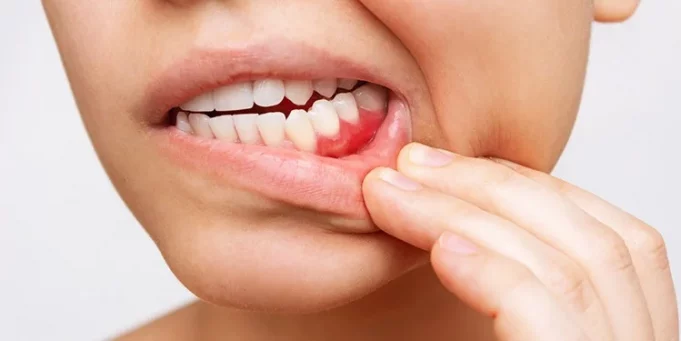Gum disease affects many people at some point in their lives. Research has found that gum disease is a common occurrence in adults, with a prevalence in roughly 50% of adults over the age of 30.
Gum disease is where the tissues or gums that hold your teeth in place become infected as a natural body response to certain groups of pathogenic bacteria. If left untreated, it can escalate to severe types of periodontitis, causing jawbone damage, loose teeth, tooth drifting, and opening up gaps between the teeth.
Hence, it is crucial for people to understand the causes of common gum disease and seek periodontal disease treatment as soon as possible to prevent irreversible damage. Read on to find out about the various signs and symptoms of this disease and how you can prevent it.
Gingivitis and periodontal disease
When bacteria from food particles remain in your mouth, it combines with your saliva to produce a white substance known as plaque. If left untreated, plaque will harden over time and become increasingly difficult for you to get rid of. As a result, bacteria will build up easily in the plaque and cause gingivitis, where your gums become red, inflamed, and bleed easily.
Gingivitis does not cause any pain, hence you may not realise that you have this condition. However, others may notice some of the unpleasant symptoms – such as bad breath – and comment on it. Although gingivitis is not irreversible, if left untreated, it can progress to a more severe condition known as periodontitis.
The symptoms of periodontitis are similar to gingivitis but much more severe – including tooth loosening, persistent bad breath, and a bad taste in your mouth. Occasionally, pus and blood are discharged. As the disease worsens, more bone and gum tissue is damaged. Your teeth may also appear longer as your gums and bone recede, and as a result, bite alterations may occur. Periodontitis is the most common cause of adult tooth loss, and if untreated, the damage can be permanent.
What causes gum diseases?
One of the main causes of gum disease is the lack of proper oral hygiene care and the buildup of plaque. If you do not diligently care for your teeth and gums by cleaning and flossing regularly, plaque will build up in your mouth. Some of the bacteria in the plaque can be harmful and the build-up on your teeth may initiate an inflammatory response from the body. This is the reason why your gums feel sore, swollen, and often bleed.
Another factor that increases the likelihood of gum disease is smoking. This is because smoking and other tobacco products impair the blood supply of your bone and soft tissue’s connection to your teeth, interfering with the normal function of gum tissue cells. If you have gum disease, smoking can accelerate bone loss and make it difficult for your body to respond to treatment.
According to research, periodontitis has also been linked to heart disease, diabetes, and rheumatoid arthritis. Researchers believe the association is due to the inflammatory response shared by gum disease and these chronic disorders. Apart from that, genetics too can influence whether or not a person develops gum disease. The quantity of attachment and bone around each tooth, as well as the immune response in different areas, are likewise predisposed by genetics.
Malnutrition may also play a part in causing gum disease, as proper nutrition is required to maintain healthy levels of enamel and prevent tooth decay. Other contributory factors are the age of a person – as gum disease does become more common as you grow older – and pregnancy, as the hormonal changes that occur in women can cause gums to become more vulnerable, possibly leading to inflammation and bleeding.
What can you do to prevent gum disease?
You can avoid gum disease by practising proper oral hygiene which includes:
- Brushing your teeth for two minutes before bedtime and once more during the day.
- Using fluoride toothpaste which is a natural mineral that helps prevent tooth decay.
- Quitting smoking or better yet, not starting the habit.
- Flossing or using interdental brushes before cleaning your teeth.
- Scheduling regular check-ups with your dentist.
- Maintaining a healthy lifestyle by eating a nutritionally balanced diet with vitamins that promote healthy gums.
If you are undergoing medical treatment for other diseases, make sure to speak to your dentist to find out whether the treatment could cause problems with your gums. In some cases, medications can cause an overgrowth of gums, which may resemble gingivitis, but is actually distinct from actual periodontal disease.
Visit your dentist
Visiting your dentist for regular check-ups will allow them to detect any problems at an early stage, treat the underlying issues, and suggest lifestyle changes or oral hygiene measures that can help you look after your gums.
If you do experience any of the symptoms of gum disease, you should seek emergency dental treatment as soon as possible to prevent escalating the disease further. Reach out to experienced dentists for consultation in periodontal treatments so that you can nip the problem in the bud!












